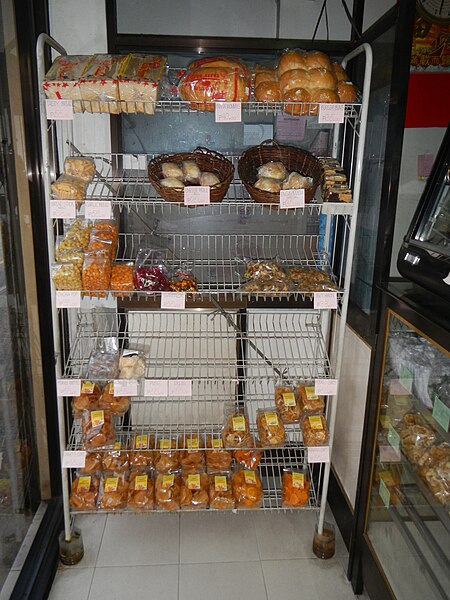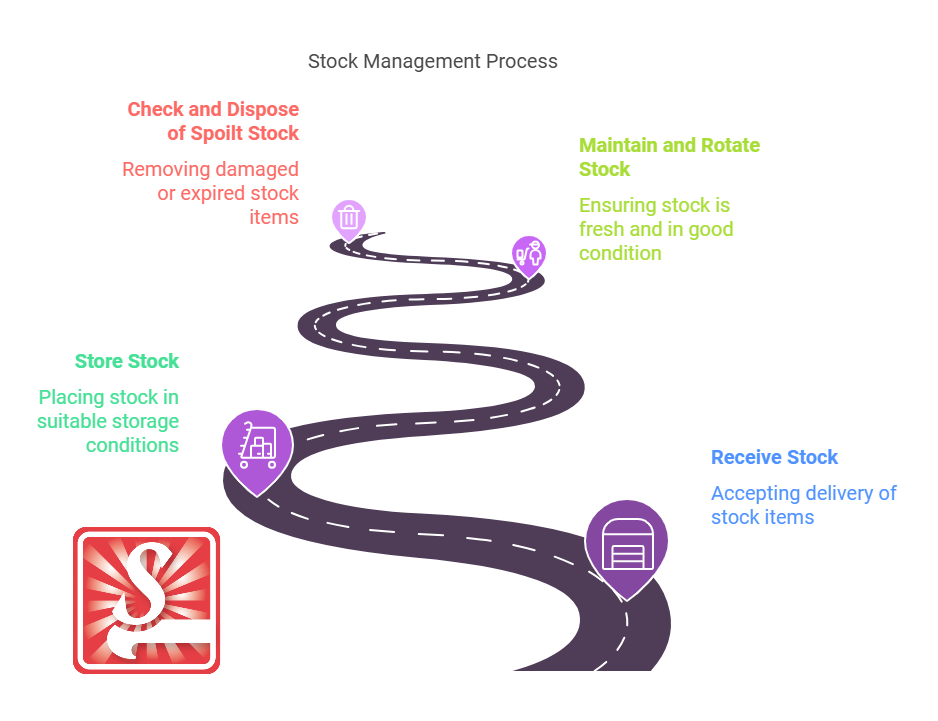First-in-First-out Principles in Receiving, Storing, and Maintaining Stock
Posted by SkillMaker in Jan, 2025
What is a concise description of First-in-First-out principles in receiving, storing, and maintaining stock?

The First-in-First-out (FIFO) principle is a method used in inventory management that ensures the oldest stock is used before new stock. This principle is particularly crucial in hospitality and catering to prevent wastage due to spoilage and to maintain product quality and freshness. FIFO involves systematic checking, proper shelf organization, and effective date-labeling practices.
Why do people in enterprises need First-in-First-out principles in receiving, storing, and maintaining stock?
Enterprises need to implement FIFO principles to effectively manage their inventory, reduce the risk of stock obsolescence, maintain quality, and ensure compliance with food safety regulations. By prioritizing the use of older stock, businesses can minimize waste, which is both economically sound and environmentally responsible. For customers, it translates to fresher products and better service.
“Implementing FIFO in stock management ensures freshness, minimizes waste, and enhances operational efficiency, crucial for thriving hospitality environments.”
What are the key components or elements of First-in-First-out principles in receiving, storing, and maintaining stock?
Key components of the FIFO principle in inventory management include:
- Receipt of Stock: Ensure accurate documentation of stock arrival dates.
- Shelving Practices: Arrange shelves to place older stock at the front and newer stock at the back.
- Expiration Date Management: Constantly monitor expiration dates to prioritize usage.
- Regular Audits: Conduct periodic reviews of stock to ensure FIFO compliance.
- Staff Training: Educate staff on the importance and execution of FIFO in daily operations.
What key terms, with descriptions, relate to First-in-First-out principles in receiving, storing, and maintaining stock?

Registered Trademark®
- Inventory Turnover: Measure of how often inventory is sold and replaced over time.
- Shelf Life: The length of time a product remains suitable for sale.
- Perishability: The susceptibility of an item to spoil or decay.
- Waste Reduction: The process of minimizing waste generation, primarily through efficient stock management.
- Rotating Stock Method: Systematic method of arranging stock to ensure FIFO use.
Who is typically engaged with operating or implementing First-in-First-out principles in receiving, storing, and maintaining stock?
Store managers, inventory controllers, kitchen staff, and supply chain managers are typically responsible for implementing FIFO principles. These roles collectively ensure that stock is efficiently received, stored, and used in accordance with FIFO standards to maintain quality and minimize waste.
How do First-in-First-out principles align or integrate with other components of Hospitality and Catering?

FIFO principles integrate seamlessly with health and safety standards, order management, and quality assurance protocols in Hospitality and Catering. By managing stock efficiently, businesses enhance food safety, maintain consistent order fulfillment, and ensure a high standard of customer satisfaction. This approach also complements environmental sustainability goals by minimizing food waste.
Where can the student go to find out more information about First-in-First-out principles in receiving, storing, and maintaining stock?
What job roles would be knowledgeable about First-in-First-out principles in receiving, storing, and maintaining stock?
Roles include:
- Inventory Managers
- Supply Chain Coordinators
- Kitchen Managers
- Procurement Officers
- Warehouse Staff
What are First-in-First-out principles like in relation to sports, family, or schools?

In relation to sports, applying FIFO principles is like a team prioritizing seasoned players at crucial game moments to leverage experience optimally.
Within a family, it’s similar to managing a pantry using older items first to ensure meals are nutritious and complete.
In schools, it reflects the organized sequencing of curriculum delivery to build on foundational skills progressively, ensuring efficient learning pathways and sustained engagement throughout the academic year.
(The first edition of this post was generated by AI to provide affordable education and insights to a learner-hungry world. The author will edit, endorse, and update it with additional rich learning content.)


 Post Tagged with
Post Tagged with